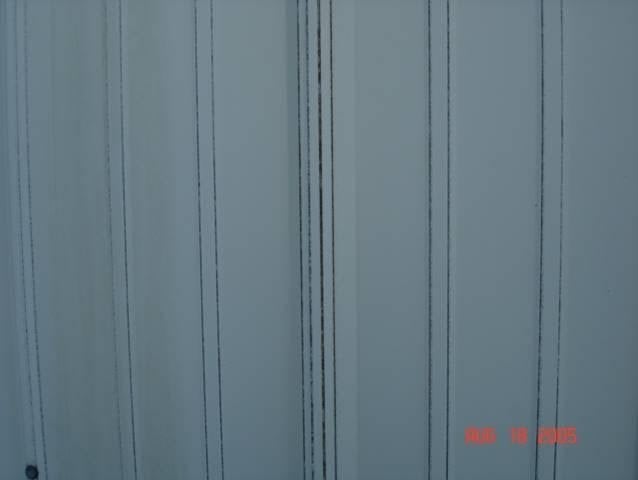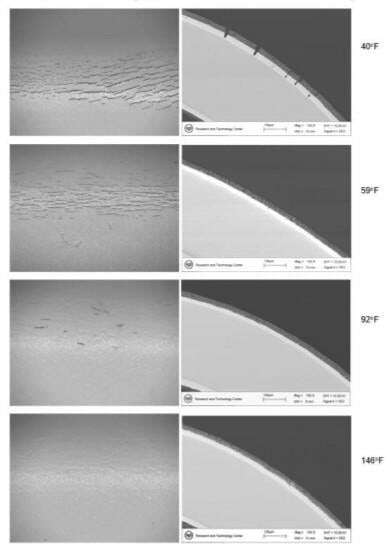- Home
- Markets
- Post Frame
- Thermoforming
Post Frame
Thermoforming

Thermoforming
The roll forming process during metal panel manufacturing can generate tensile strains on the outer surface of the ribs, which can result in cracks in the paint and in the metallic coating. These cracks can lead to premature cosmetic corrosion of the products in service. Warm forming is one way to avoid this phenomenon. In a study, U. S. Steel demonstrated that warm roll-forming not only improves the formability of the paint film, but also improves the formability of the underlying metallic coating.
When tension-bend cracks are produced in the paint of prepainted galvanized or GALVALUME® Coated Steel Sheet, and these cracks coincide with cracks in the metallic coating, the underlying steel substrate is exposed to corrosive attack. The end-result is the formation of red rust at the base of the crack and via transfer to the surface of the paint surrounding the tension bend crack. This is called tension bend staining.

Roll-forming processes have traditionally been carried out at room temperature. To prevent tension-bend cracking, McElroy Metal practices warm roll forming at some manufacturing locations. During the warm forming process, the painted material is heated to 120°F to 170°F using infra–red heaters prior to entering the forming rolls. Roll-forming in this manner can significantly reduce the incidence of tension-bend cracking.
Silicone Modified Polyester coatings are in the “better” category when it comes to paint performance (PVDF or Kynar 500 coating are “best”). Hardness is a known characteristic of SMP coatings is the fact that the systems can be brittle and micro-fracture during the roll forming process. These microscopic fractures can enable moisture to penetrate the SMP coatings and contact the raw steel, which can result in rust along roll formed edges on tight radius bends. The metal roofing industry refers to this phenome as tension bend staining. McElroy Metal warm forms Max-Rib II and Max-Rib 100 panels to lessen the risk of tension bend staining. Warm forming heats up the coil so the SMP coatings are softer and more flexible, eliminating micro fractures.
McElroy Metal does not warm form Max-Rib Ultra because Kynar 500 coatings are softer and more flexible than SMP coatings and do not micro facture during the roll forming process.
Tension bend micro-fractures shown on panel surface. As temperature increases, micro-fractures are reduced.
Find a Distributor / Contractor Near You
Whether you’re building a new home or planning renovations, a metal roof can deliver long-term cost savings and comfort. To explore your options and find the product that meets your aesthetic and budgetary needs, contact a McElroy Metal distributor or contractor in your area today. We can’t wait to help make your dream home a reality.





